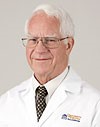This fall, three respected leaders of professional medical organizations came together in Washington, DC, to speak about the importance of reducing exposures to toxic chemicals in order to prevent cancer and other adverse health outcomes. The discussion was based on recent groundbreaking professional society position statements about toxic exposures and reproductive health.
In September, the American Congress of Obstetricians and Gynecologists (ACOG), along with the American Society for Reproductive Medicine (ASRM), issued the Committee Opinion: Environmental Chemicals Harm Reproductive Health. The statement recognizes that “the evidence that links exposure to toxic environmental agents and adverse reproductive and developmental health outcomes is sufficiently robust” and calls for “timely action to identify and reduce exposure to toxic environmental agents.”
The Endocrine Society issued a Scientific Statement on Endocrine Disrupting Chemicals in 2009, acknowledging the “evidence for adverse reproductive outcomes from exposure to endocrine disrupting chemicals is strong” and urging clinicians and policy makers to apply “the Precautionary Principle…to inform decisions about exposure to, and risk from, potential endocrine disruptors.”
This call examined the rationale behind these professional society position statements and explored the implications for clinical practice and health policy.
Featured Speakers
 Jeanne A. Conry, MD, PhD, is the current president of The American Congress of Obstetricians and Gynecologists (ACOG). Dr. Conry is assistant physician in chief for Kaiser Permanente’s Sacramento-Roseville region in California. She has been a practicing ob-gyn with The Permanente Medical Group for more than 20 years. Dr. Conry’s clinical interests include environmental health, menopausal health and preconception care. She was chair of the California Preconception Care Council from 2006 to 2010 and currently serves on the Centers for Disease Control and Prevention Select Panel on Preconception, a coalition of government and health care providers that seeks to improve pregnancy outcomes by emphasizing the need for healthy choices across the reproductive life span of women.
Jeanne A. Conry, MD, PhD, is the current president of The American Congress of Obstetricians and Gynecologists (ACOG). Dr. Conry is assistant physician in chief for Kaiser Permanente’s Sacramento-Roseville region in California. She has been a practicing ob-gyn with The Permanente Medical Group for more than 20 years. Dr. Conry’s clinical interests include environmental health, menopausal health and preconception care. She was chair of the California Preconception Care Council from 2006 to 2010 and currently serves on the Centers for Disease Control and Prevention Select Panel on Preconception, a coalition of government and health care providers that seeks to improve pregnancy outcomes by emphasizing the need for healthy choices across the reproductive life span of women.
 Linda C. Giudice, MD, PhD, is the immediate past president of the American Society for Reproductive Medicine (ASRM). Dr. Giudice is a professor and the chair of the Department of Obstetrics, Gynecology and Reproductive Sciences and the Robert B. Jaffe, MD, Endowed Chair in Reproductive Sciences at the University of California, San Francisco. Dr. Giudice is a biochemist, gynecologist, and reproductive endocrinologist whose research includes environmental impacts on reproductive health, steroid hormone signaling in human endometrium and endometrial-placental interactions. She is also director of the Center for Research on Origins and Biological Consequences of Human Infertility.
Linda C. Giudice, MD, PhD, is the immediate past president of the American Society for Reproductive Medicine (ASRM). Dr. Giudice is a professor and the chair of the Department of Obstetrics, Gynecology and Reproductive Sciences and the Robert B. Jaffe, MD, Endowed Chair in Reproductive Sciences at the University of California, San Francisco. Dr. Giudice is a biochemist, gynecologist, and reproductive endocrinologist whose research includes environmental impacts on reproductive health, steroid hormone signaling in human endometrium and endometrial-placental interactions. She is also director of the Center for Research on Origins and Biological Consequences of Human Infertility.
 Richard J. Santen, MD, is the president-elect of The Endocrine Society, which, founded in 1916, is the world’s oldest, largest and most prestigious organization devoted to research on hormones and the clinical practice of endocrinology. Dr. Santen is a professor of medicine in the Division of Endocrinology and Metabolism at University of Virginia School of Medicine and the Evan Pugh Professor of Medicine at The Pennsylvania State University. He is an expert in benign breast diseases and has contributed to the development of various endocrine treatments of breast cancer. Working with a group of National Cancer Institute-sponsored researchers, he showed that estrogen could cause gene mutations that result in breast cancer.
Richard J. Santen, MD, is the president-elect of The Endocrine Society, which, founded in 1916, is the world’s oldest, largest and most prestigious organization devoted to research on hormones and the clinical practice of endocrinology. Dr. Santen is a professor of medicine in the Division of Endocrinology and Metabolism at University of Virginia School of Medicine and the Evan Pugh Professor of Medicine at The Pennsylvania State University. He is an expert in benign breast diseases and has contributed to the development of various endocrine treatments of breast cancer. Working with a group of National Cancer Institute-sponsored researchers, he showed that estrogen could cause gene mutations that result in breast cancer.
The call was moderated by Karin Russ, national coordinator of the CHE Fertility and Reproductive Health Working Group.
